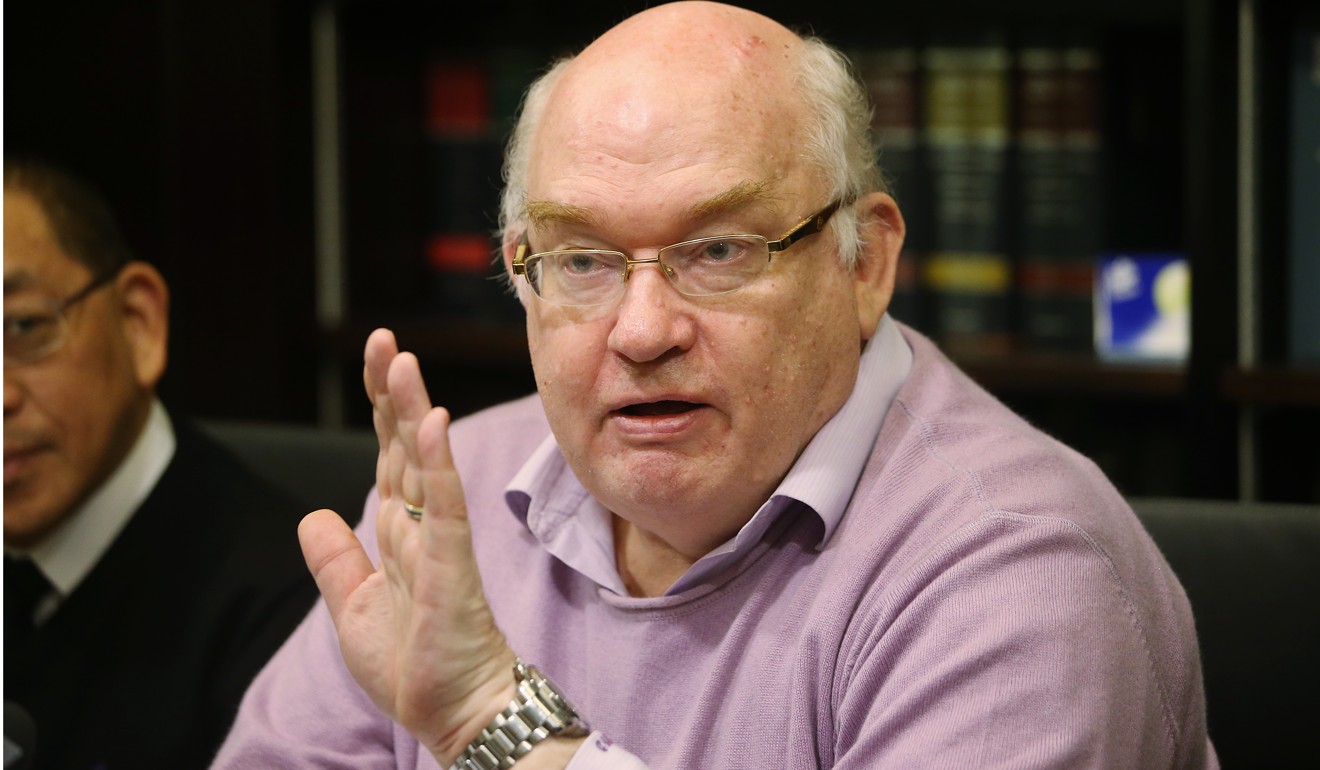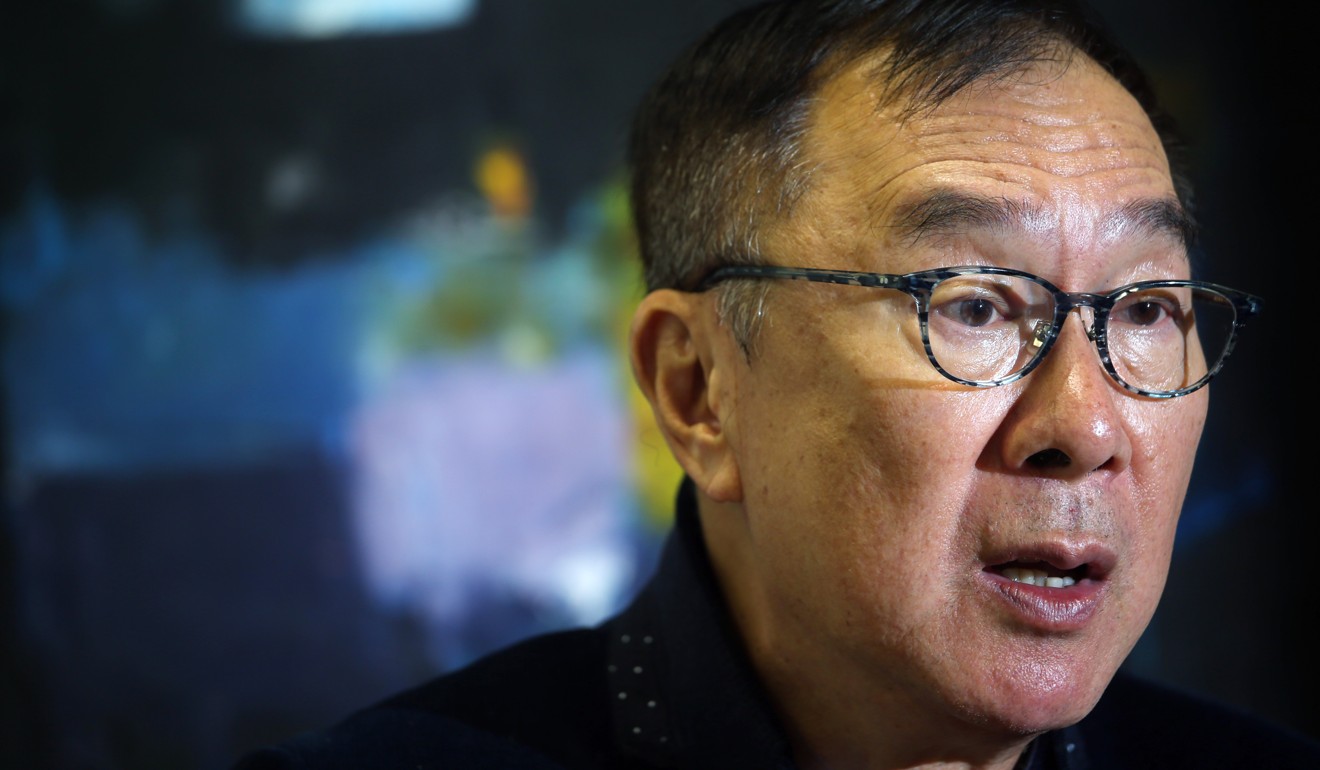
Hong Kong Bar Association must steer clear of politics, top lawyer warns, as poll contest heats up
Criminal lawyer Cheng Huan says team vying for control of barristers’ body in election this month has crossed a line by commenting on matters with a political tone
Hong Kong’s leading criminal lawyer Cheng Huan has warned against any politicisation of the city’s professional body for barristers, saying the Bar Association should only weigh in on the legal aspect of politically divisive issues and not side with any causes.
Cheng is the latest legal eagle to speak out in the lead up to a heated election for the chairmanship of the association, due to take place on January 18.
His comments on Tuesday were seen as targeting the star-studded line-up led by prominent human rights lawyer Philip Dykes who will go up against an incumbent team led by chairman Paul Lam Ting-kwok for control of the body. Lam is vying for a second term.
Dykes’ six-person team, which includes legal heavyweights Professor Johannes Chan Man-mun and criminal law expert Lawrence Lok Ying-kam, have slammed the Bar under Lam’s leadership for failing to issue a timely response over the legality of a contentious joint checkpoint proposal for a high-speed rail link to mainland China. The plan would for the first time allow mainland laws to be enforced on Hong Kong soil and has raised concern in legal circles over whether it complies with the Basic Law, the city’s mini-constitution.

The Dykes team has also argued that the Bar should adopt a more progressive stance in defending the rule of law as the city would face other similar constitutional debates in the coming year.
But speaking to the Post in an exclusive and rare interview on Tuesday, Cheng, a supporter of Lam’s candidacy, said Dykes’ team had “crossed the Rubicon” by commenting on matters with a political tone rather than a legal one. He said the Bar was an “association of professionals” under the law, not a “political party”.
Cheng acknowledged that the barristers’ body had historically held a duty to uphold the rule of law and judicial independence, which he still believed was important.
Make sure joint-checkpoint plan is a ‘one-off’, says Hong Kong Bar Association chairman
But he added: “For the Bar to command continuous respect from the community, it must gain the respect of people across the political spectrum – not confined to one particular cause.”
The barrister of 42 years said it appeared that Dykes’ team had placed emphasis on the political stances taken by Beijing.
He suggested the correct approach would be to look at the matter in question and decide whether it violated the Basic Law, and specify reasons.
Hong Kong officials and lawyers have been wrestling in recent months with the so-called “co-location arrangement” for the rail checkpoint, which would see national laws implemented in a section of the train station inside Hong Kong, despite a provision of the Basic Law stating that should not happen.
Article 18 of the mini-constitution states that national laws shall not be applied to Hong Kong unless added to Annexe III.

But the National People’s Congress Standing Committee, China’s top legislative body, last month decided the arrangement did not violate the Basic Law because mainland laws would only be implemented in part of the city.
That prompted the Bar Association to issue a stern statement saying it was “appalled” with the plan, which it said would severely undermine the rule of law.
But for Cheng, the arrangement was more of a “practical” matter.
“There is no great moral or legal principle involved in my view,” he said.
“It’s more of a question of convenience that one is able to travel as quickly and as efficiently as possible to one part of China – Hong Kong – to another part of China.”
While some said the Bar statement was too strongly worded, Cheng said he respected the body’s position as he knew it had worked hard to come up with a statement on the legal issues without crossing a line.
Hong Kong Bar Association ‘appalled’ by approval of joint checkpoint plan, saying it ‘irreparably’ breaches Basic Law
He said he expected more controversial issues to stir similar emotions in the coming year, including attempts to legislate on a national security law as required by Article 23 of the Basic Law.
On Article 23, the Bar should not be commenting on whether the city should have a security law, as that would be a political statement, he said. Instead it should only comment on the draft of the law.
“How Article 23 should be drafted, whether it is consistent with the United Nations charter on human rights, you are entitled to do that,” Cheng said.
In an earlier interview with the Post, Dykes, who was Bar Association chairman in 2005 and 2006, denied suggestions his team was politically motivated.
The human rights lawyer said he was not a member of any political party and his team’s objective was to advance the rule of law, not any particular ideological agenda.
As the election race heated up, Winnie Tam Wan-chi, another former Bar Association chair, on Monday lamented that the leadership poll had divided the association.
But Dykes said that, if anything, he hoped the result of the election would unify the body.


